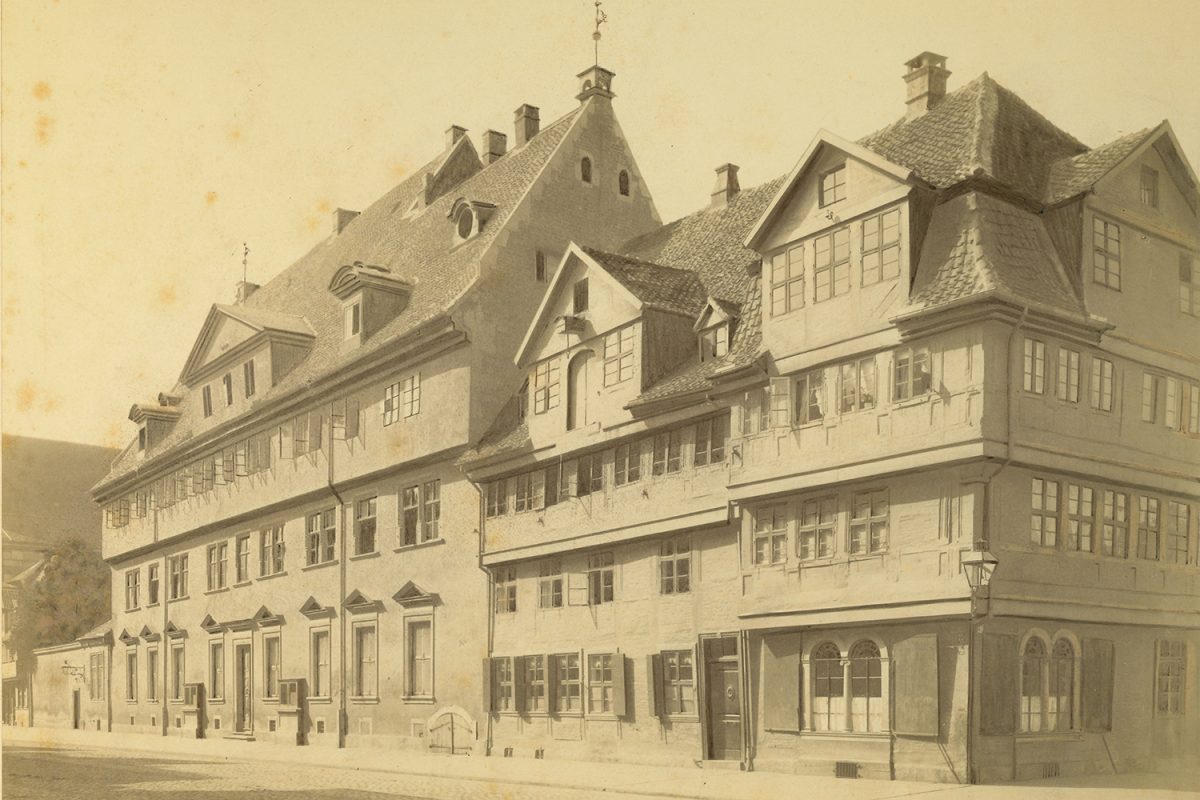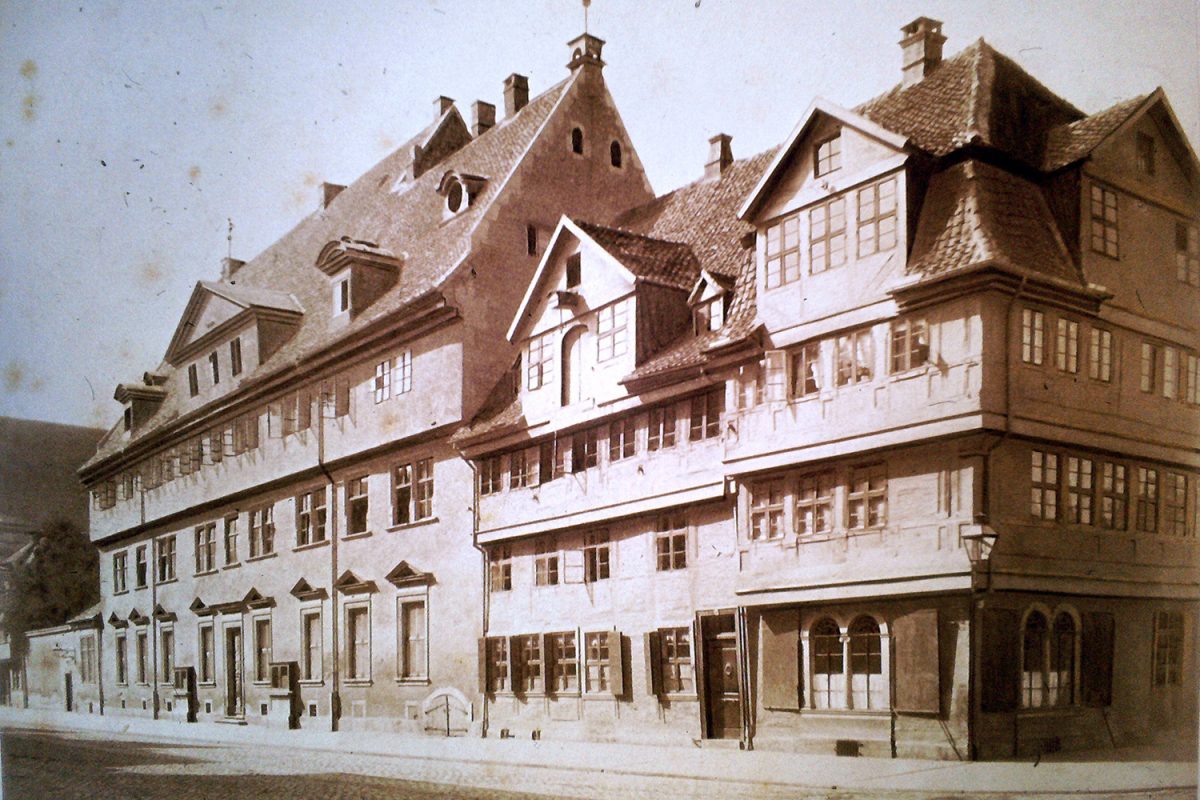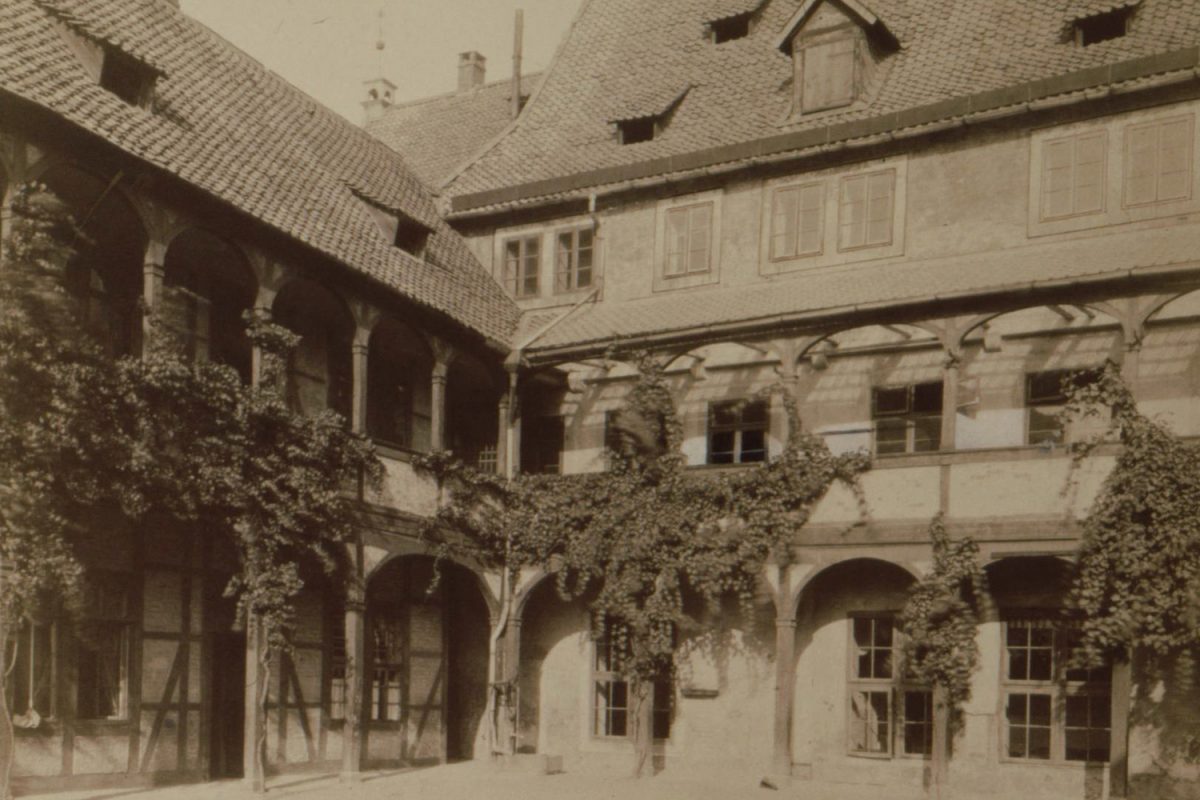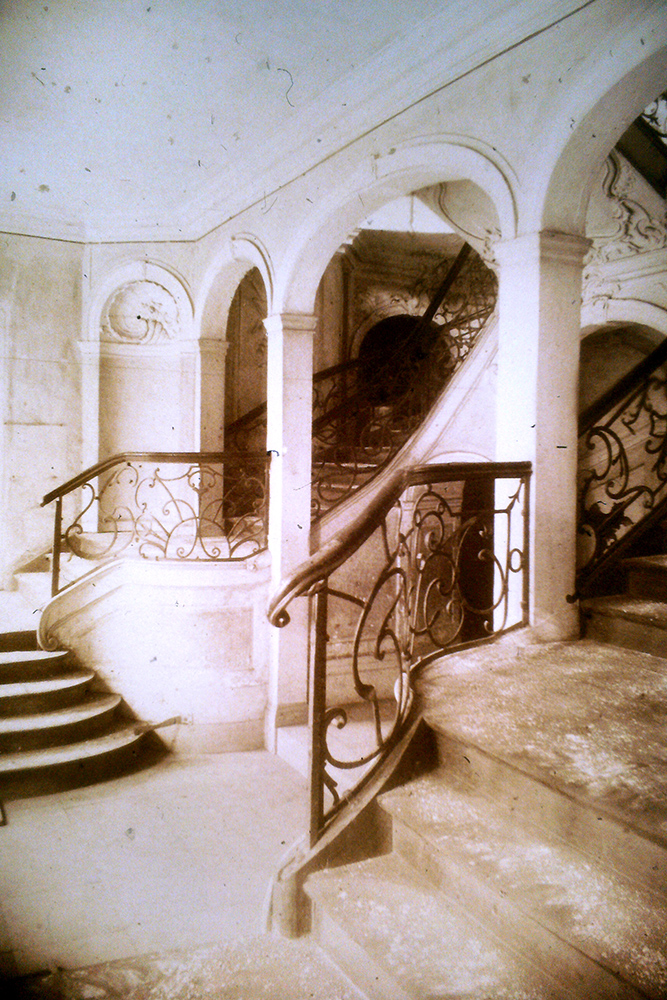Picture of the Month: Founded in 1745 Looking back for the 275th anniversary
1745: The founding date of the Collegium Carolinum is clearly visible on the facade of the Altgebäude. The roots for today’s Technische Universität Braunschweig were thus already laid 275 years ago. Even if we cannot celebrate this anniversary as planned, a special event is planned for the founding day to make the campus shine. But first of all we will look back on this founding period with our picture of the month.
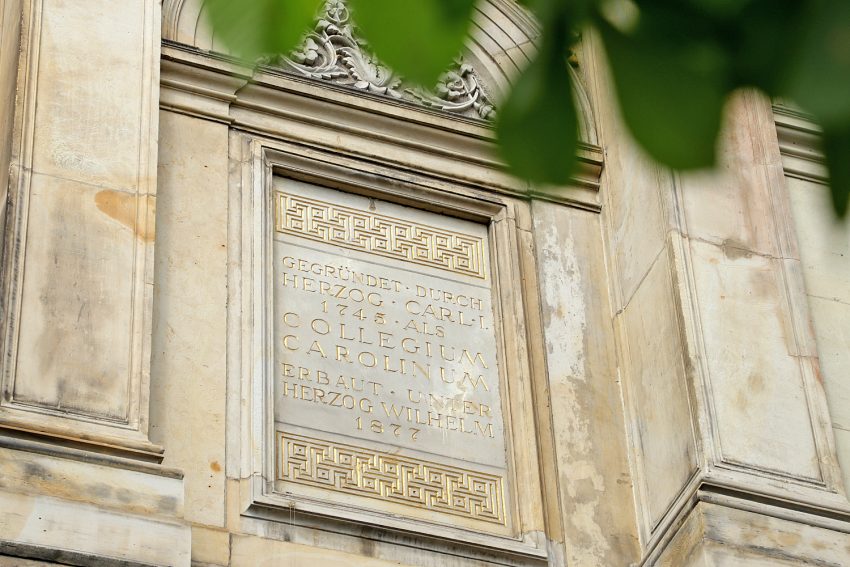
The founding date of the Collegium Carolinum is clearly visible on the facade of the Altgebäude. Picture credits: Kristina Rottig/TU Braunschweig
We will celebrate the founding day of the Collegium Carolinum and thus also of the TU Braunschweig on 5 July. On this day, 275 years ago, the first lectures took place at Bohlweg near the Hagenmarkt. And that in German language. This was not at all common: At the time, Latin was the language of instruction at universities – both nationally and internationally. Lectures at the Collegium began with subjects such as religion, Latin, Greek, geometry, arithmetic and physics.
Two students and two professors
The first students had already enrolled on 29 June 1745: August Wilhelm Hassel from Wolfenbüttel and Justus Ludovicus Danielis Lambrecht from Jerxheim. Whether they took part in inauguration ceremonies together with their professors is unknown and, not least for financial reasons, rather unlikely.
It is certain, however, that on July 5th only two professors were available for the time being: the classical philologist Elias Caspar Reichard (1714-1791) and Magister Johann Ludwig Oeder (1722-1776). He represented the teaching areas of physics and mathematics. In order to conserve the budget, people in the ducal service were given teaching positions. In the following years the teaching staff grew: full and associate professors, lecturers and lectors were added.
A mixture of grammar school and university
In terms of educational history, the Collegium Carolinum belongs to the “high schools”, which were founded in many small principalities at that time and served the education of the nobility, but also of the middle classes. They represented a mixture of grammar school and university. The local initiator was the sovereign Duke Karl I of Braunschweig-Wolfenbüttel, as is also noted on the facade of the Altgebäude. As an enlightened prince he initiated numerous reforms. These included the Collegium Carolinum: it was intended to convey an understanding of science and the world based on “reason and utility”. The concept for this was presented by the ducal advisors Heinrich Bernhard Schrader von Schliestedt, later Minister of State, and the court preacher and prince-educator Johann Friedrich Wilhelm Jerusalem with the “Vorläufige Nachricht von dem Collegio Carolino”. In addition to mechanics, law, architecture, arts, languages, theology and foreign languages, it also took into account “Weltweisheit” (“world wisdom”).
The target group of the Collegium Carolinum were young men from wealthy noble or middle-class families. Talented but fundless young men such as the well-known mathematician Carl Friedrich Gauss received scholarships.
Light show and projections
To celebrate the founding day of the Carolo-Wilhelmina on July 5, the TU Braunschweig will make the sky shine. The roof of the Haus der Wissenschaft will be illuminated in the anniversary colours in several scenes on 4 July from 11 pm. The dome light show will be on display throughout the entire “founding week” and will be the prelude to another project to mark the anniversary: a video by Braunschweig video and projection artist Christo Czichy will show projections on university buildings, combining the buildings and the research focus of the TU Braunschweig into his oeuvre.
Text: Claudia Bei der Wieden, Bianca Loschinsky


